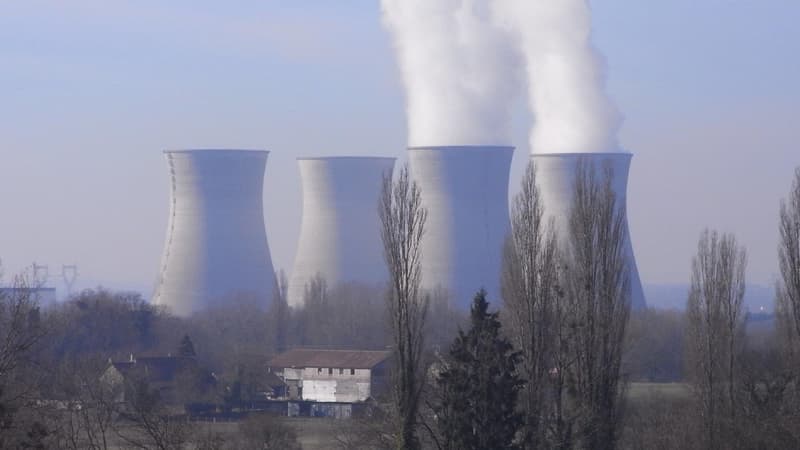The second part of the energy triptych, the nuclear acceleration bill that aims to promote the construction of new reactors begins its parliamentary journey in the Senate on Tuesday, where it should be carried by favorable winds.
This technical text by the Minister for the Energy Transition Agnès Pannier-Runacher should make it possible to relaunch an “ambitious and sustainable” nuclear policy initiated by Emmanuel Macron.
An objective shared by almost all the senators, mostly from the right, with the exception of environmentalists. The President of the Republic announced his intention to build six new reactors and wanted studies to begin for the construction of another eight.
Launched in “2035-37”
The bill is intended to “save time” – up to 56 months is expected – by simplifying administrative procedures for the construction of new facilities near existing nuclear sites. This for a period limited to 15 years in the initial text, increased to 20 years by the senators in commission.
Specifically, the plots will be exempt from planning authorization because the conformity control will be ensured by the State. The right of expropriation will be made more flexible. Or works could even be started on buildings not intended to receive radioactive substances before closing the public investigation.
The next two EPRs should be located in Penly (Seine-Maritime), followed by another two in Gravelines (North), according to EDF plans.
“The objective of the first concrete pour, which is very ambitious, is at the end of the five-year period, therefore 2027 (…) rather at the end of 2027”, indicated Agnès Pannier-Runacher during her appearance before the senators. upon commissioning, it fast-forwarded “2035-37”.
“Upside down”
“We are way behind on nuclear power,” laments the chair of the LR Economic Affairs Committee, Sophie Primas. For the speaker Daniel Gremillet (LR), this text “is necessary if we want (…) to have enough energy at an accessible price and free of carbon, and controllable energy”.
The senators regret, however, that the texts are presented to them “upside down.” For them, it is the energy programming bill, which marks France’s trajectories in each energy, which should have come first, before the two technical texts on renewables and nuclear. The minister “hopes” that it can be presented in June.
The speaker wanted to “fill in the blind spots of the text, which suffers from a lack of strategic vision”. The senators thus want to break the pre-existing “blockades” by suppressing in particular the objective of reducing to 50% the participation of nuclear energy in the production of electricity by 2035 and imposing the revision of the decree that provides for the closure of 12 reactors, in addition to Fessenheim .
France, which gets about 70% of its electricity from nuclear power, decided in 2015 to diversify its supply by shutting down 14 of its 58 reactors, ahead of a change announced by the president.
“Misinterpretation of history”
The senators also adopted a series of amendments on “two main axes: simplify and secure.” In particular, it is a question of integrating the risks linked to climate change in the demonstration of the safety of reactors and cyber-resilience in their protection against malicious acts.
The government and the senatorial majority will still find environmental senators on their way, for whom “this new nuclear power goes against the current of history,” according to their leader Daniel Salmon.
Environmentalists will defend a motion to reject the text outright, which they believe puts parliamentarians before the “fait accompli” until a public debate on the construction of new nuclear reactors ends.
“This text does not anticipate in any way the decisions that would be taken on the future of the French energy mix or on the construction of the EPR2 program,” the ministry assures us. A solemn vote will be organized on Tuesday, January 24, in the Senate chamber, after which the bill will go to the National Assembly.
Source: BFM TV


